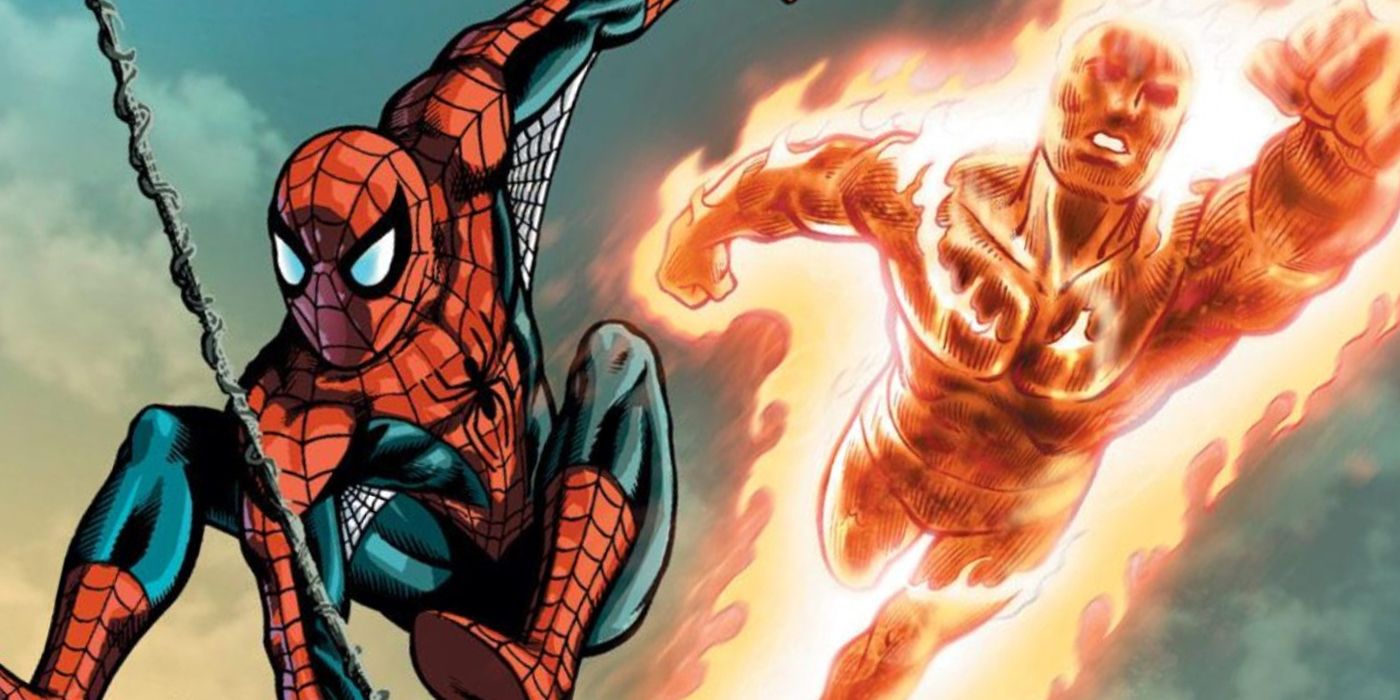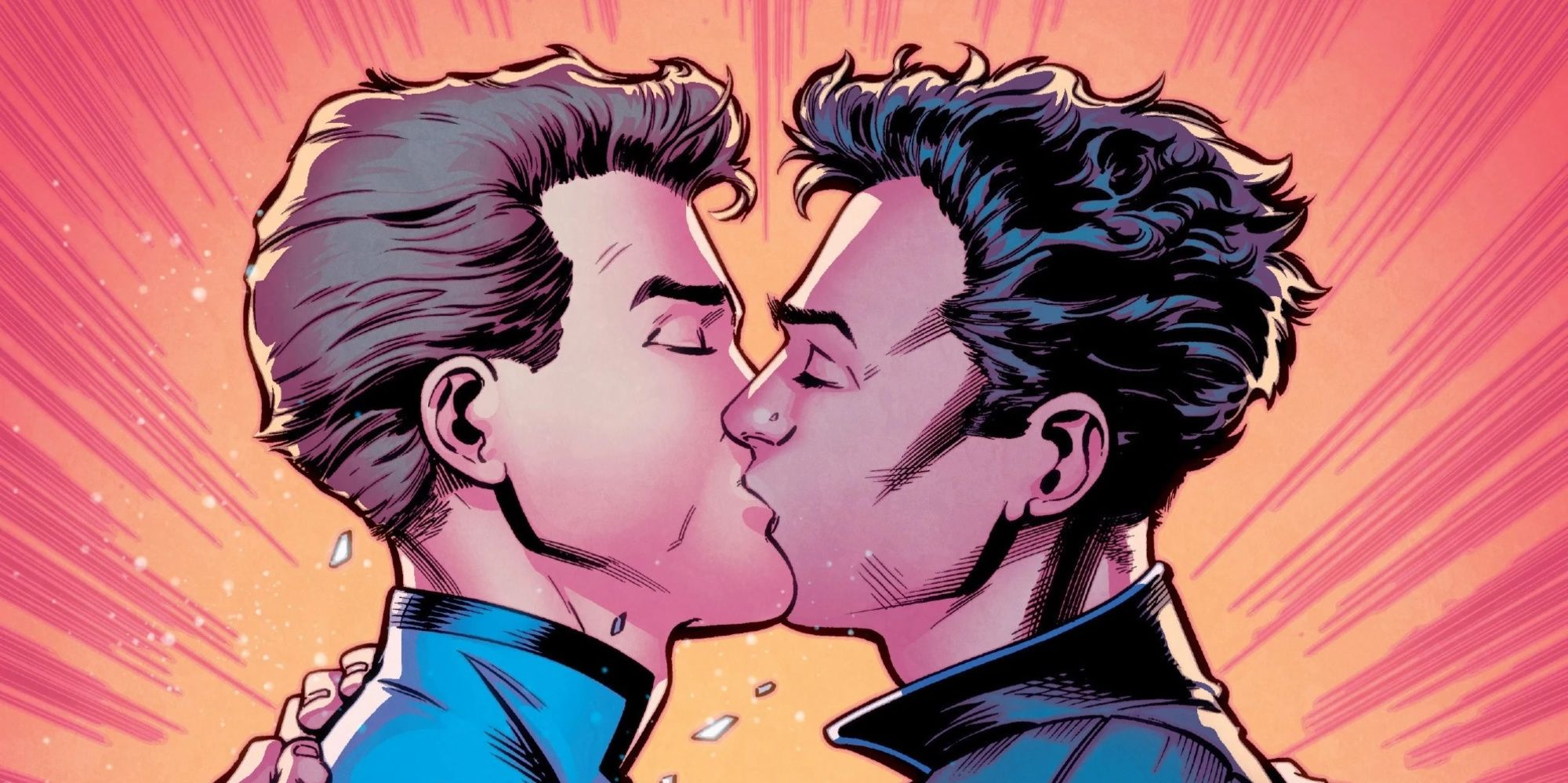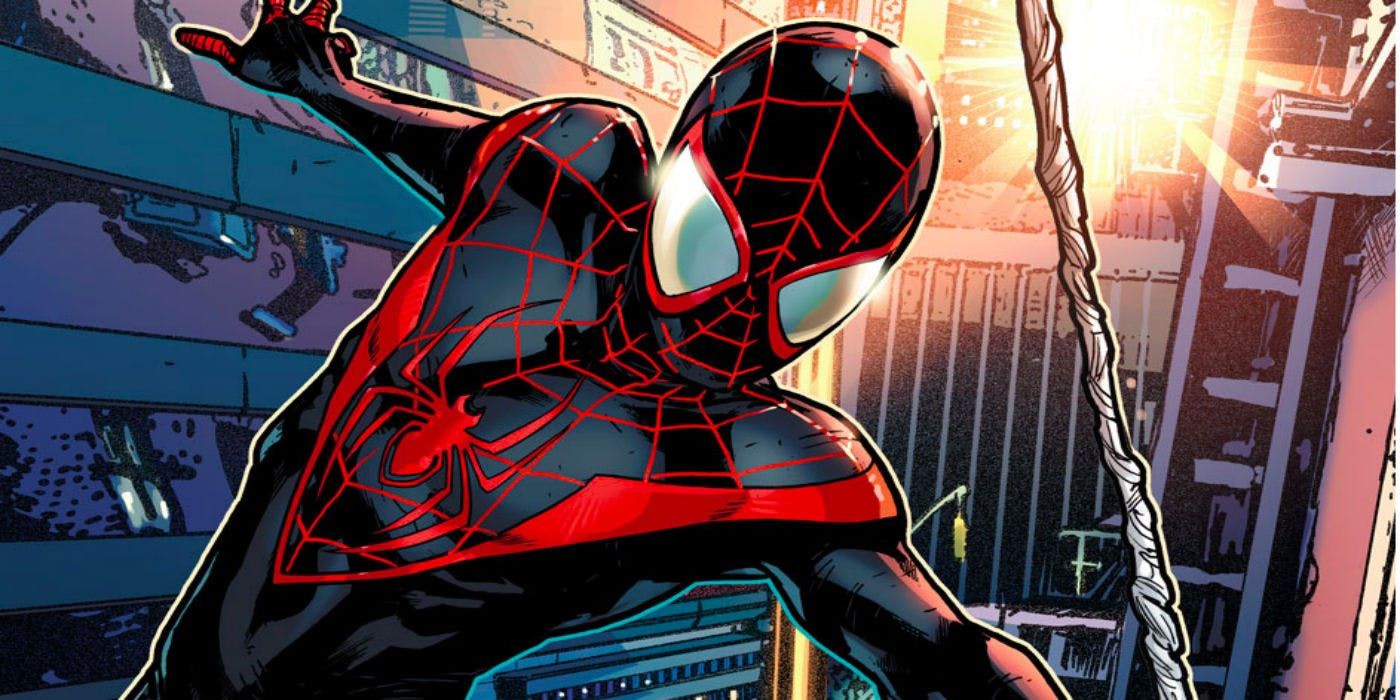The LGBTQ+ side of comic fandom has been making more and more of a push for increased representation. While mainstream superhero media has been slow to respond to this effort -- if at all -- two actors famous for playing Spider-Man have not only responded to it but even seemed interested in adding to that push themselves.
Tom Holland and Andrew Garfield both have discussed the possibility of playing a queer Spider-Man. In the promotional tour for Spider-Man: Far From Home, Holland expressed open interest in playing a gay Spider-Man. Garfield brought the issue up multiple times, openly pondering the possibilities of making Peter Parker bisexual.
When Stan Lee heard about Garfield's initial comments, he responded with a joke that could be construed as being in poor taste. "He's becoming bisexual? Who have you been talking to? Seriously, I don't know anything about that. And if it's true, I'm going to make a couple of phone calls. I figure one sex is enough for anybody."
Garfield addressed the backlash to his comment, in which he proposed a potential romance between himself and a male MJ played by, specifically, Michael B. Jordan:
Listen, what I said in that Entertainment Weekly interview was a question. It was just a simple, philosophical question about sexual orientation, about prejudice. I obviously long for the time where sexual orientation, skin color, is a small thread in the fabric of a human being, and all men are created equal -- and women, sorry, women as well.
To speak to the idea of me and Michael B. Jordan getting together, it was tongue in cheek, absolutely tongue in cheek. It would be illogical for me in the third movie to be like, you know what? I'm kind of attracted to guys. That's just not going to work. That's clear.
These statements were made back in 2013 and the world is in a very different place right now. But debates like these are still raging on. Beyond homophobia, is there any good reason why Spider-Man can't be any sexual orientation other than straight?
The most obvious answer to this is that Peter Parker is already firmly established as being attracted to women, and women only. So, he can't possibly change a key aspect of himself that's never been called into question before.
Except that isn't true. Many people might not realize that they're attracted to people of the same gender until years down the road. This can happen for a myriad of reasons, but more often than not because they've been deliberately or unconsciously suppressing these feelings due to a sense of guilt or denial of the truth.
This exact concept played out in the comics not long after Garfield and Lee's comments. Iceman of the X-Men, as it turned out, was gay for his entire life, but had so deeply suppressed his orientation that no one realized it. He even dated women for years. But that didn't change the fact that he was actually gay.
So even if Peter Parker turned out to be gay or bisexual this revelation would retroactively alter his history, but not so radically that he'd been unrecognizable.
Of all the currently canonically heterosexual superheroes, what makes Spider-Man a more likely candidate to come out of the closet? Spider-Man is a character of universal appeal. Unlike Batman or Superman, anyone can see themselves in Spider-Man. He's the ultimate underdog, loved and hated, plagued by mundane and serious problems alike and always down on his luck. He's a character that's best when he's struggling against something.
Garfield himself addressed this better than anyone else when he added to his previously quoted comments:
It was just more a philosophical question, and what I believe about Spider-Man is that he does stand for everybody: black, white, Chinese, Malaysian, gay, straight, lesbian, bisexual, transgender. He will put himself in harm's way for anyone. He is colorblind. He's blind to sexual orientation, and that is what he has always represented to me. He represents the everyman, but he represents the underdog and those marginalized who come up against great prejudice which I, as a middle-class straight, white man, don't really understand so much.
This debate around the character's sexuality is reminiscent of another controversy from a while back. When The Amazing Spider-Man was announced, many fans petitioned that actor Donald Glover be cast in the role of Peter Parker. The idea of a black Spider-Man was similarly divisive, with some arguing changing the character's race was too radical, while others argued that it would be terrific representation for African-Americans and that there was no good reason why the character had to be white.
This controversy ultimately proved there was an audience for a person of color playing Spider-Man. Shortly thereafter, Brian Michael Bendis and Sara Pichelli created Miles Morales, who went on to get a movie of his own, Spider-Man: Into the Spider-Verse. In this, Spider-Man is a chunky middle-aged Jewish man, a tech-savvy Japanese schoolgirl, a not-dead Gwen Stacy, a noir detective voiced by Nicolas Cage and... a pig. In that crowd, would a bisexual Spider-Man really stand out at all?
So, we ask once more: Why can't Spider-Man be gay or bisexual? As Spider-Man: Into the Spider-Verse reminds us, anyone can put on that mask and be Spider-Man. There is no "one true" Spidey. The only thing that needs to happen for Spider-Man to be queer is for someone to write that story.



